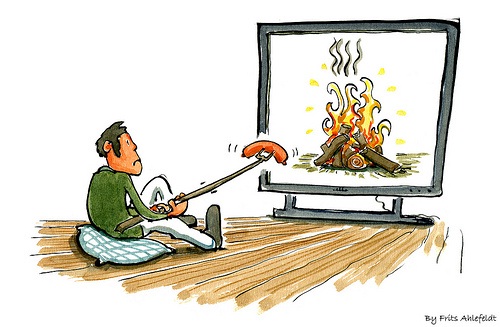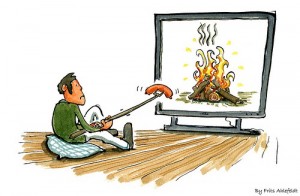
Vlogging and eBooks
 Vlogging and eBooks
Vlogging and eBooks
As if there was not enough to catch up with for authors who, or so we hope, love the written word, it seems that blogs are not the only platform they will have to build.
Running a blog might have sound relatively easy, what with all the available templates and the relatively minor knowledge of programming it requires, it was just a question of writing interesting posts on a regular basis and putting them online.
In theory, the writing part should be easy for writers, otherwise, what is the point of being a writer?
Yet, now there is a growing competition called vlogging. Yes, this is not a typo, it is a contraction that stands for video blogging.
Granted, it still has not overthrown the cherished, already classic, written blog, but, as blogs became ubiquitous with the advent of ready made templates and technologically friendly platforms, vlogs are likely to follow suit once the recording requirements and editing techniques become easily available to all.
Already teenagers with means to purchase the necessary material are turning closets padded with clothes into home made recording studios. The upcoming 4G browsers will also enable fast downloads of videos, removing the adverse reactions from Internet users unwilling to wait for the clip to download or suffer through the clunky pace of the viewing.
So, does that mean that writers will have to turn to vlogging to reach their readers? Maybe, though one might hope that book and ebook readers will still prefer to read about their book rather than listen to people talking about books.
This being said, most authors’ blogs are not about their books per se, they are more about either themselves, or about the process of writing, or about any number of topics that is somehow related to their books but not directly about the books themselves.
So depending on their target audience, some authors will certainly benefit from adding vlogging to their skills.
Already, book trailers are becoming more and more common place, though good one are costly and their efficiency is yet to be proven. Yet, they point to a belief that the bridge between sound and images and the printed word is widening fast.
Keeping in mind that children are now offered a books to read on touch screen that incorporate a slew of animations, sound effects and other gimmicks, meaning that moving to “real” books, or ebooks, will imply not only moving from image to text but from interactive to static.
So is the future writer condemned to think already about enhancing blogs and books and move to vlogs and maybe vooks? Or can the future writer continue to rely exclusively on world created exclusively with words?
Feel free to comment below